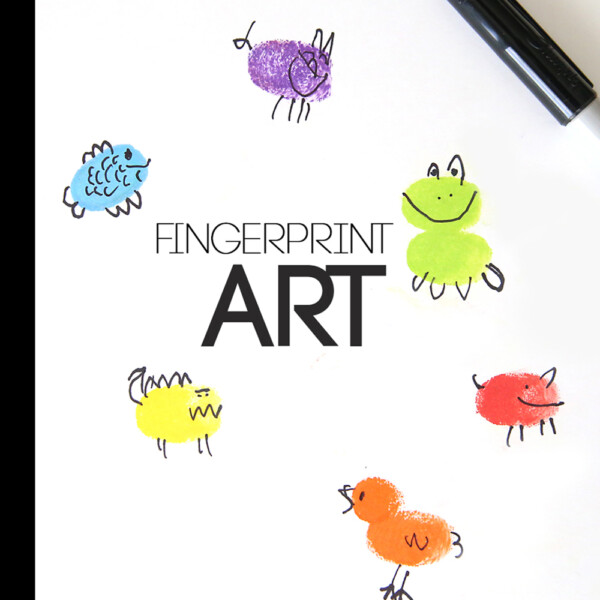In today’s post: Sibling rivalry and constantly fighting kids can make a parent miserable! Find 21 great ideas for getting your kids to stop fighting and learn to get along.
If you’re well into summer break where you live, meaning all your kids are home from school, you’re probably already tired of hearing your kids bicker. Why must they argue over every single thing? Why can’t they just. stop. bugging each other? And please, for the love of all that is holy, will someone invent partitions that go between each seat in the car so they are physically unable to torment each other every time we have to drive somewhere!
Sibling rivalry and sibling arguments happen in every family, but there are things you can do to help. I’ve rounded up 21 different tips and ideas for getting your kids to stop fighting and helping them learn to get along. Some of these are things that have worked well in our family and some are new tips I’ve never tried, but I’ve included lots of options so you can find the ideas that will work best for you and your children.
How to stop sibling rivalry and keep your kids from fighting
1. The most important and effective thing you can do to stop your children from fighting and arguing is this: don’t yell at your kids. Easier said than done, I know, but parents absolutely set the tone in a home, and if Mom or Dad yells at the kids on a regular basis, they are going to yell at each other on a regular basis. If, on the other hand, you do your absolute best not to yell, you can set the expectation that your family lives in a home where people don’t yell at each other. Period.
2. Have a no tolerance policy for yelling, hitting, punching, saying mean things, etc. This means that every single time an argument escalates into a shouting match or physical fight, there will be a consequence. Being consistent is one of the hardest parts of parenting–it ends up being a lot of work to enforce a consequence every single time something happens–but the great part is that consistent consequences get results. More parenting “work” now means a whole lot less in the long run. Do your best to determine quickly who was involved and to what extent (without entertaining the whole “he did this” “but she did this first!” business), and dole out consequences accordingly. Without yelling 🙂
3. Intervene with your presence, not just your voice. This one is hard for me. I swear as soon as I sit down to get something done, someone starts bickering and the thoughts of putting aside what I’m doing, standing up, and walking over to wherever the bickering is happening (again!) just seems like a lot of work, so instead I end up shouting something like “Stop fighting!” or “You two come here right now!” Not only does this set me back on #1, it’s just not nearly as effective as actually walking over to the bickering pair. When I intervene with my presence, I get their attention almost immediately. When I sit on the couch and try to intervene with my voice, I get ignored and the fighting kids just keep going.
4. Help kids learn to work out disputes on their own. I absolutely believe a parent should intervene and a consequence should occur when unacceptable behavior is happening (physical fighting, shouting, or cruel words). However, if a parent swoops in and plays judge in every single disagreement, kids won’t learn the interpersonal skills they are going to need in the future. Teaching them how to solve disputes before they escalate into a fight is just as important as making sure they know not to punch each other. Try intervening before a fight occurs with these words: what can you do to solve this problem? Teach kids to focus on solutions, not blame. What can you do to make this better? What ideas do you both have to work this out? Give some ideas if needed (we play your game first for 10 minutes, then my game for 10 minutes, etc.) but let the kids work out a solution together, and then praise them for doing that. One caution: make sure you’re aware enough of the situation to notice if an older sibling is bullying a younger one into agreement and take further steps if needed.
5. Use role play to practice resolving conflicts before they occur. Remember, kids are just kids; they don’t understand conflict resolution and how it works unless you teach it to them. So role play some different situations, like: your brother just grabbed your toy out of your hand. What do you do? Give some ideas or options, and then have the pair act out the situation. Teach them better ways to respond to a problem (ex: “I feel really sad that you took my toy – can I have it back please?” instead of “You’re stupid, give it back!”) Practice the kinds of situations you see coming up in specific sibling rivalries, and do it more than once. For younger kids, make sure to teach them what sharing looks like and how to take turns.
6. Spend time with your kids. I don’t believe it’s my job to entertain my children 24 hours a day, but it’s also certainly true that when they are bored, they are much more likely to fight. Spending a few minutes playing play dough with them and suggesting ideas for what to do (“let’s see how many different things in our fridge we can build out of play dough”) will redirect their energy into cooperative play and make it more likely that they’ll continue to play without fighting once you remove yourself from the game.
7. Encourage separate playtime as well. Especially in the summer, when everyone is together all day long, it can be helpful for each child to have some time away from his or her siblings. Find different places in the house for each child to be (ideally where they can’t even see each other) and set them up with a quiet activity (find 50 easy indoor activities for kids here!). Sometimes just a 20 minute break from each other helps siblings be kinder and more cooperative when they get back together.
8. Be sure to praise kids when they are getting along. A lot! As parents, we get used to taking good behavior for granted and then get frustrated with bad behavior, which leads us to say things like: “Why are you kids always fighting? Can’t you ever just get along?” Repeating comments like that cements in the kids’ minds the idea that they just don’t get along with their siblings. Instead, try commenting every single time you see siblings playing together or cooperating in any way for a few days. This will help them begin to see themselves as siblings who get along and enjoy each other, and changing the way they identify themselves will change their behavior.
9. If your find your kids having the same argument over and over, institute “house rules” to cover that situation. For example, if two kids are sharing the last cookie, one gets to cut it in half and the other gets to pick which half they want. If they fight over where to sit in the car, have a weekly seating chart that rotates. If they fight over who’s turn it is to do the dishes, keep track on the calendar. Roll a die to decide who gets the first turn on the iPad. Any time your kids are having the same fight over and over is a chance to institute a “house rule”. Get the kids’ input, decide on a solution, and stick to it. No exceptions. No more fights.
10. Take away the thing that is causing the problem. If they fight over a toy, take it away. If they fight over video games, take away electronics privileges. Explain that our relationships are more important than our possessions, and so things that cause a rift will go away. After a set amount of time (shorter for younger kids and longer for older ones), allow the siblings to earn back the item or privilege by doing something together.
11. Assign cooperative consequences. I think giving kids chores is a great consequence for fighting, and having them do the chores together is even better – it helps them learn that the sooner they shelve the sibling rivalry and start working together, the sooner they’ll be done and able to go back to playing. I’ve heard the washing opposite sides of a glass door method works pretty well since they end up making faces at each other and having fun while they’re doing it.
12. Give siblings the opportunity to be on the same team, instead of always competing. Suggest they play on the same team against the video game, work together to solve a puzzle, or build something together. This will help them realize their relationship can be cooperative, not just competitive. Art of a Beautiful Life has a great post with more details on this. The Educator’s Spin On It shares an idea for a sibling book, with photo ideas of things the kids can work on together.
13. Keep track of times the kids do nice things for each other, and let them earn a fun reward. Check out this idea for a sweetness chart from Let’s Lasso the Moon.
14. Get the kids’ input on what consequences for fighting should be, and put them together in a “Get Along” jar. See how and why this works (and how you can use this to teach the concept of grace) at Millions of Miles.
15. Consider the “Super Kid” approach, where the kids rotate being the super kid of the day or week. The super kids gets to pick first that day (what game, what show, what’s for lunch, etc.). Learn more at The Errand of Angels.
16. Figure out a special system for while you’re in the car. Little kids seem to be incapable of not bugging each other in the car, and it’s so hard to referee rights when you’re driving, so decide on some kind of reward or consequence system you use every time you’re in the car. Some moms pull over to the side of the road and won’t drive again until the fighting kids settle down. The House of Hendrix came up with a creative solution that involves Nerf darts and has almost limited backseat bickering.
17. Reward positive sibling interactions with kindness coins (Idea from Capturing Joy).
18. Print out “bee nice” notes the kids can write to each other. Idea from Parents.com.
19. Teach kids to pray for each other. Finds ideas for this from Jennie Cunnion.
20. Ask kids who are complaining about each other to write or draw their version of the story. Most of the time this is too much work, and kids will just give up whatever they’re fighting about and work something else out instead.
21. Send them outside. Assign kids to run laps around the house, do jumping jacks or cartwheels, or draw a chalk mural together. Physical activity is a great way to burn off the energy they’d spend fighting indoors, plus it’s just good for them, and I find my kids are much less likely to argue when they’re outside.
What’s your best tip for getting your kids to stop fighting? Please let us know in the comments!






Kristi Andres says
Along the lines of #12 there are two board games (well that I know of) where everyone is on the same team to accomplish a goal. They are so fun too… Forbidden Desert and Forbidden Island. It’s great because either everyone wins or they all die (well in the game of course!). 🙂